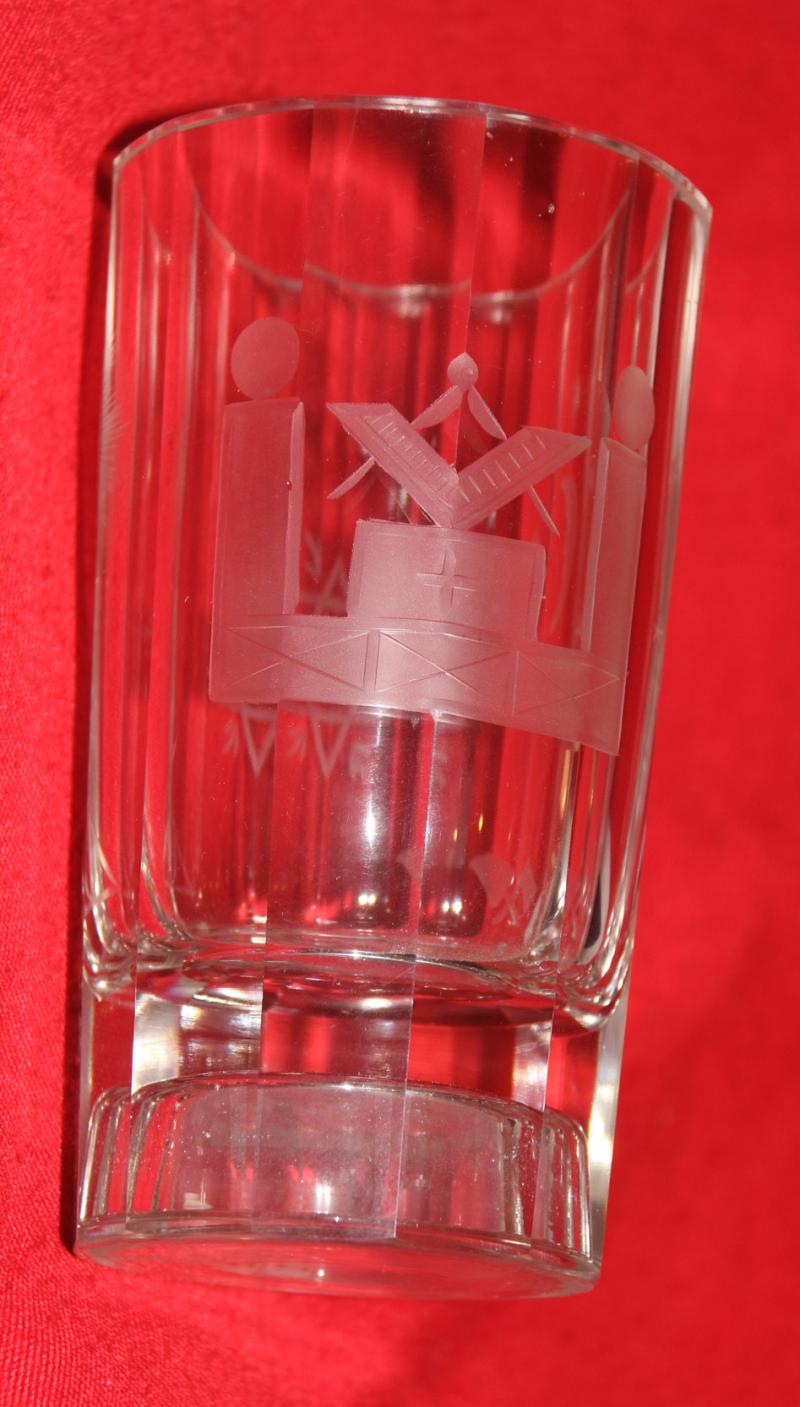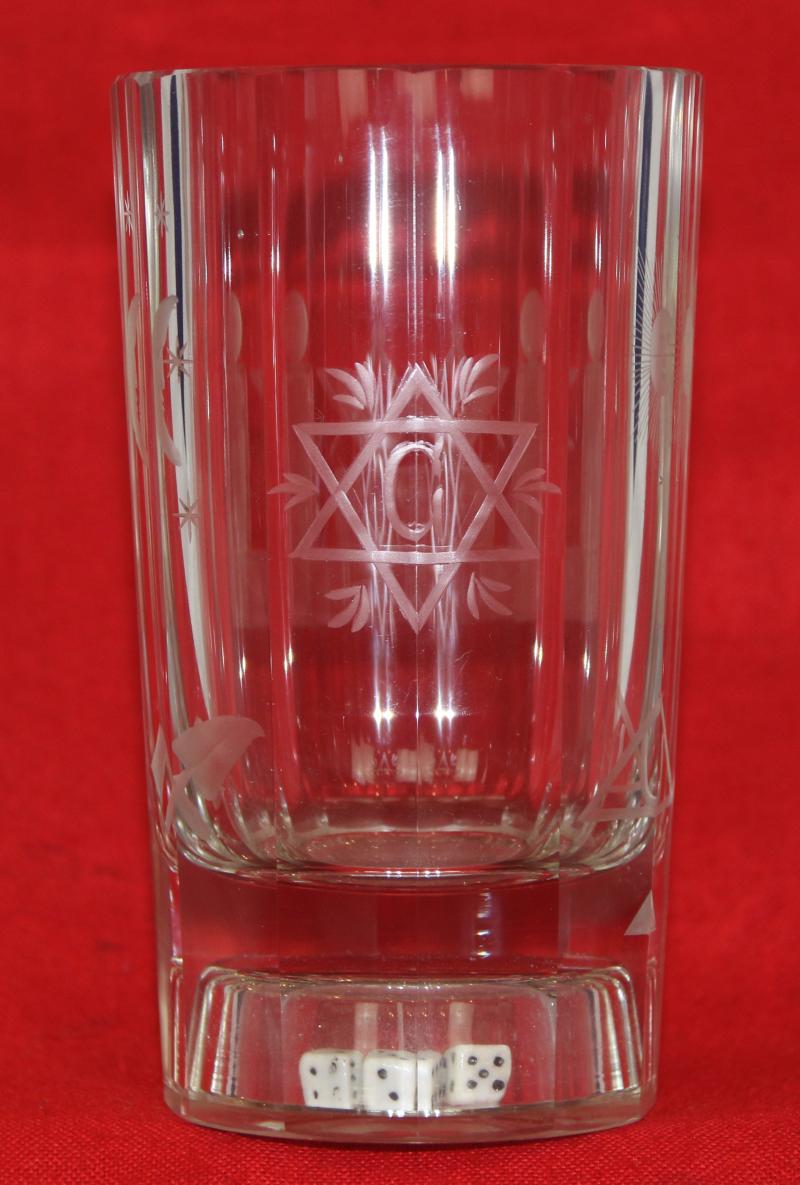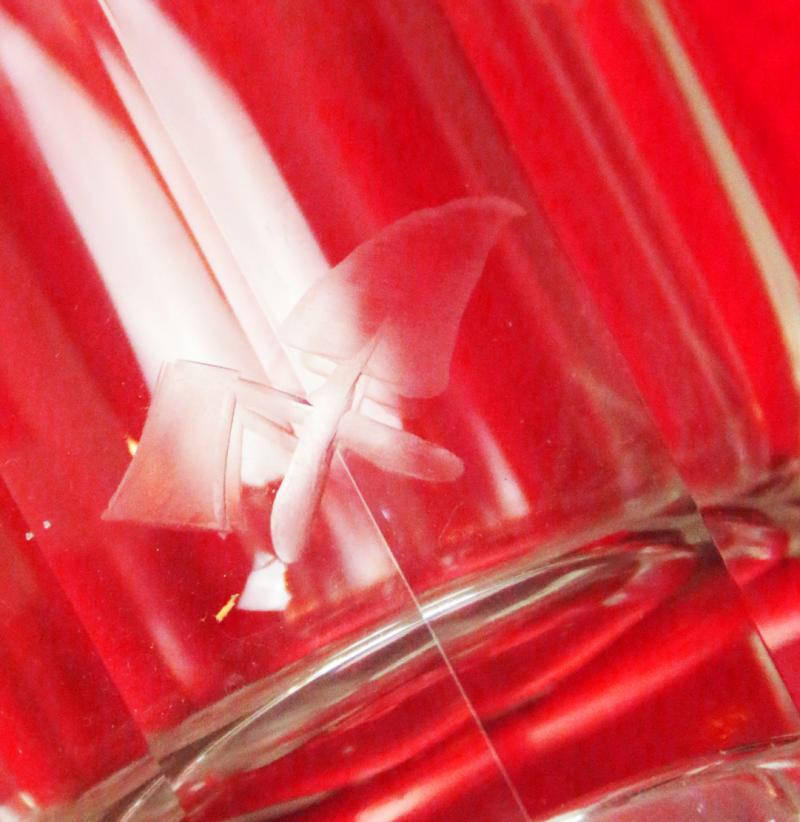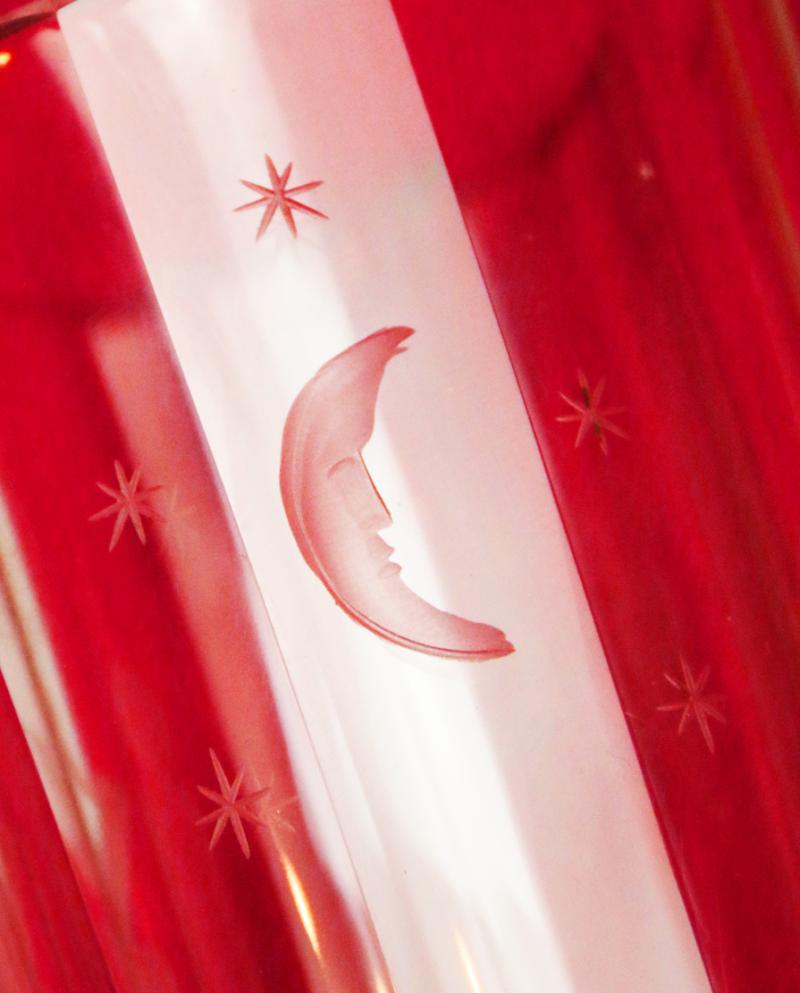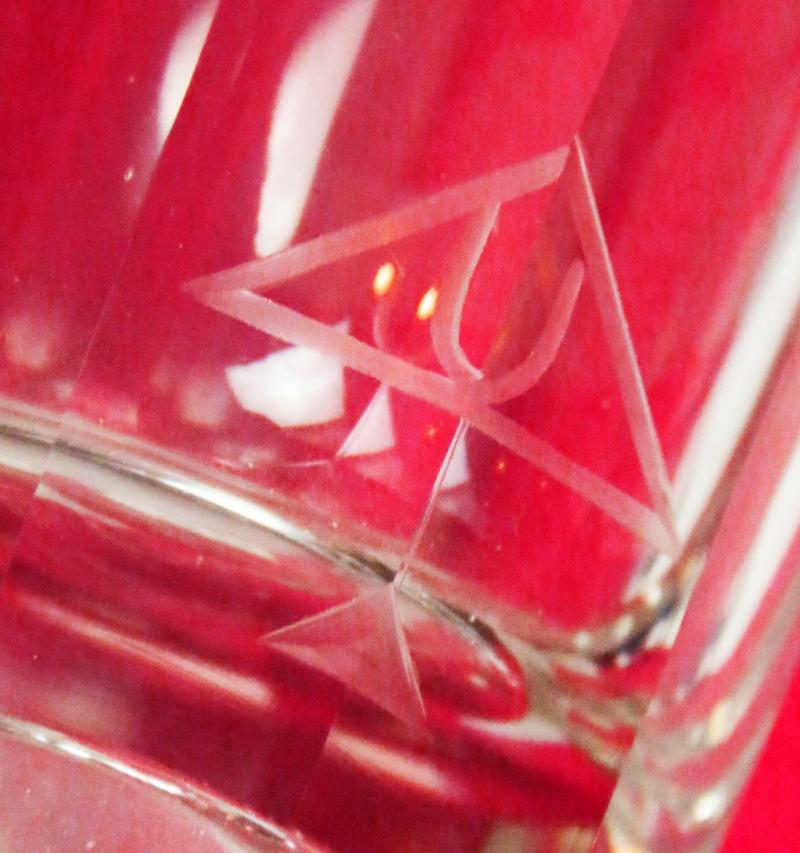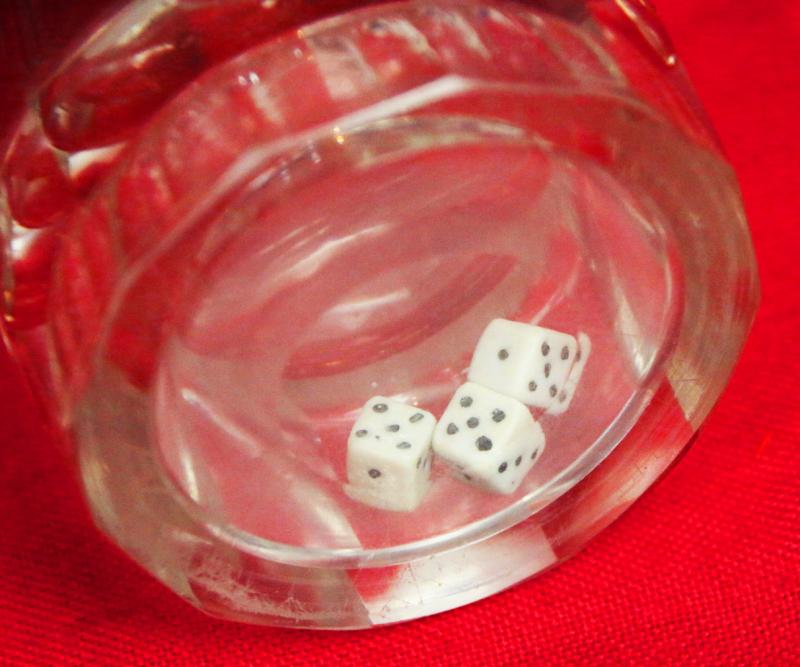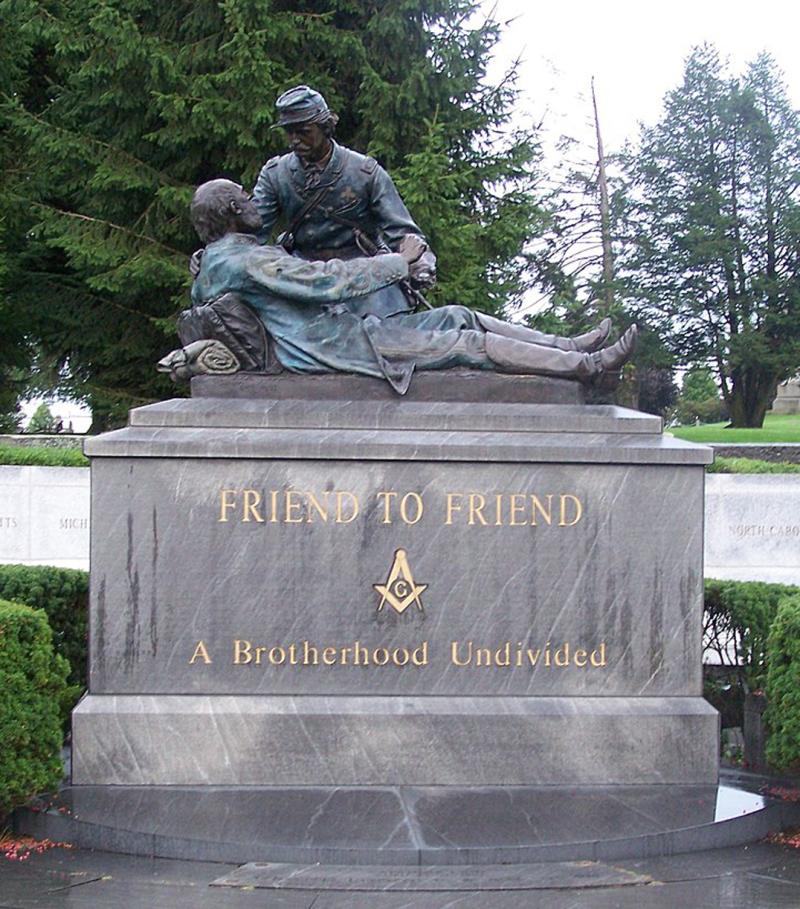A Superb Crimean War and US Civil War Period Crystal Masonic Gaming Tumbler
A good size crystal gaming tumbler, engraved with numerous Masonic symbols, including the square and compass, with three gaming dice sealed within the glass hollow base.
Circa 1850's.
After 4 years of war, the weary and almost defeated Confederate Army was retreating and leaving the Confederate capital of Richmond to its own fate. As the army retreated, fires broke out in all sections of the city. Hoodlums, deserters, and criminals, with no law and order, began to pillage the city.
Just as the city seemed to be doomed, a Union cavalry unit swung up Franklin Street. The bearded colonel looked warily at the riff raff around him who were about to fire a building which bore a sign "Masonic Hall." Taking command of the moment, he halted his troopers and ordered that an adjutant "have all Masons wheel out of column." Almost half of his force moved out. From this group he ordered a suitable guard to protect the Masonic Temple. The column reformed and resumed its ride. Later General Godfrey Weitzel, a Mason, gave the order, after a request by the Lodge, to continue the guard. The building saved is said to have been the oldest purely Masonic building in America with records dating back to 1787, and the historic building itself was built in 1785 by Richmond Lodge 10. The Grand Lodge assembled here after its formation in Williamsburg until its move in 1869.
In the battle for Galveston, Texas a young Union naval officer who was a Mason was killed on board one of the Union vessels.
An armistice was sought and given for his burial at sea and his father, a Confederate officer, attended the funeral on board.
It was an April morning three days after General Robert E. Lee had surrendered to General U.S. Grant. The Southern troops, led by General John B. Gordon, a Mason, were marching in columns towards the Northern troops who were standing in formation waiting for the Southerners to stack arms and fold their flags. Suddenly a shifting of arms is heard. Gordon looked up with alarm. There was nothing to fear. General Joshua Chamberlain had ordered his troops to assume the position of "honor answering honor." Immediately, the Confederate troops snapped to attention and returned the honor. It was the first act to heal the wounds of a nation that had spent four years and 618,000 lives in civil war. That command of "honor answering honor" was ordered by a Mason.
Major General Joshua Chamberlain was a member of United Lodge 8, Brunswick, Maine. After the war, he became Governor of Maine from 1866-1871 and President of Bowdoin College from 1871-83.
Code: 25504
295.00 GBP


